Taking a ride on Google's magic carpet as Earth goes VR
- Published
- comments
WATCH: Taking flight in Google Earth
Less than 15 minutes into my visit to Google’s San Francisco office, I’m face to face with Christ the Redeemer. He doesn’t look pleased to see me.
Moments later I’m inspecting, from a terrific height, the Colosseum in Rome. Then, I’m flying past the Eiffel Tower before, nerdily, I direct my ride to BBC HQ in London.
It was quite a trip. Everything looked magnificent.
This is Google Earth in VR, as seen through the HTC Vive headset.
The software lets you play superhero - fly anywhere in the world and, dataset permitting, get up close and personal in rich and vibrant 3D.
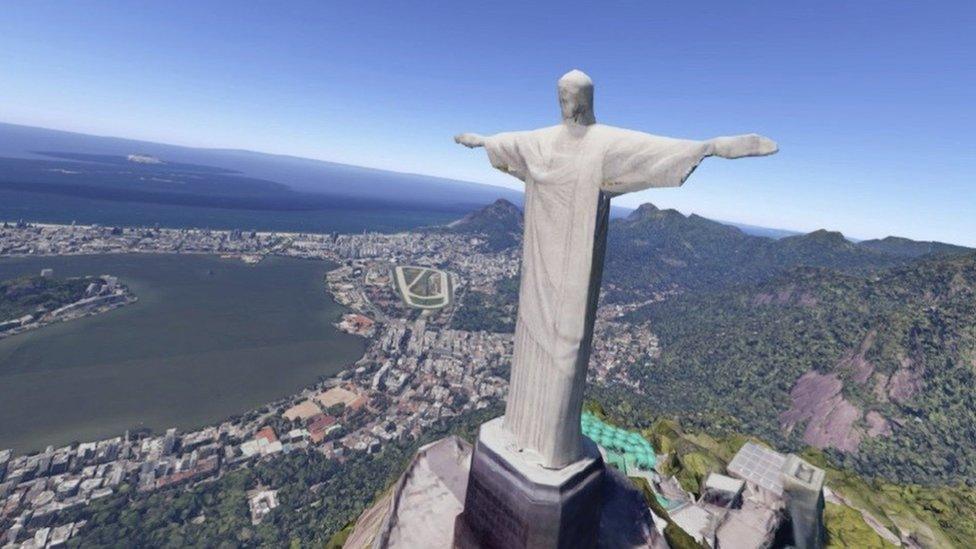
The software is currently being made available only on the HTC Vive headset and can be downloaded from Valve's Steam store
Vive’s room-scale sensors mean that as well as moving your head to get a different perspective, you can walk around your surroundings, crouching down to see what party was happening on the Buckingham Palace lawn or peering over the spectacular Half Dome in California’s Yosemite National Park.
It’s like standing over a painstakingly constructed model village of the entire planet. All on a platform that is still awaiting its first truly “killer app”. I can report it was as profound an experience as I’ve yet had within VR.
‘Mesmerising’
“I have this book on my coffee table at home about the world’s top 500 destinations,” Andrey Doronichev, the product manager for Google Earth, tells the BBC.
He jokes that if he had one holiday a year to visit all 500 places, it would take him 500 years. He tells me that his daughter is desperate to see the pyramids in Egypt and how Google Earth VR is able to take her there.
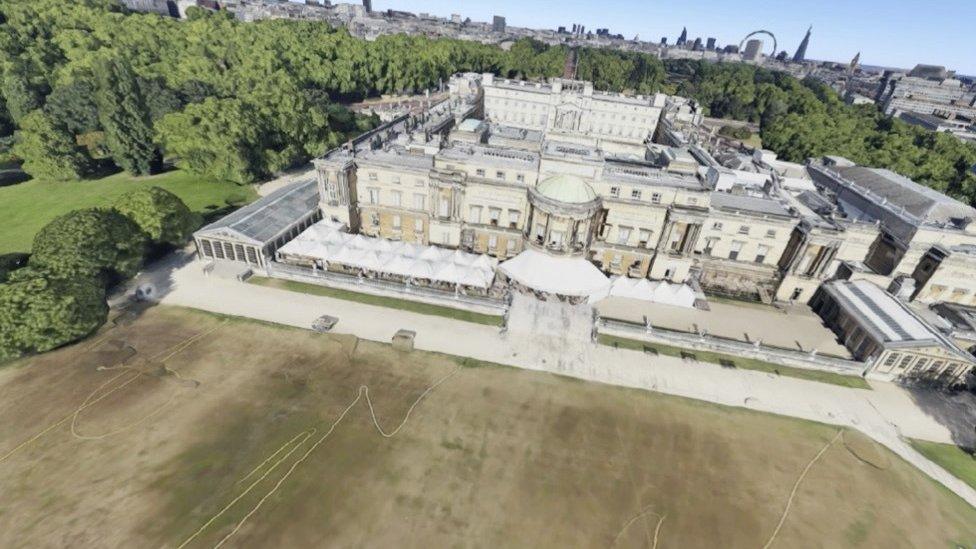
You can peek a look into people's back gardens (including the Queen's....)
Well, almost. It’s not real, of course. And there’s no substitute for actually visiting a place, particularly somewhere as breathtaking as Egypt.
But Doronichev’s hope for Google Earth VR is that it will whet your appetite for travel, and give you an idea of how small our world really is, especially if you zoom out far enough into space.
“You can see this massive globe spinning in front of you,” he says. "It’s mesmerising."
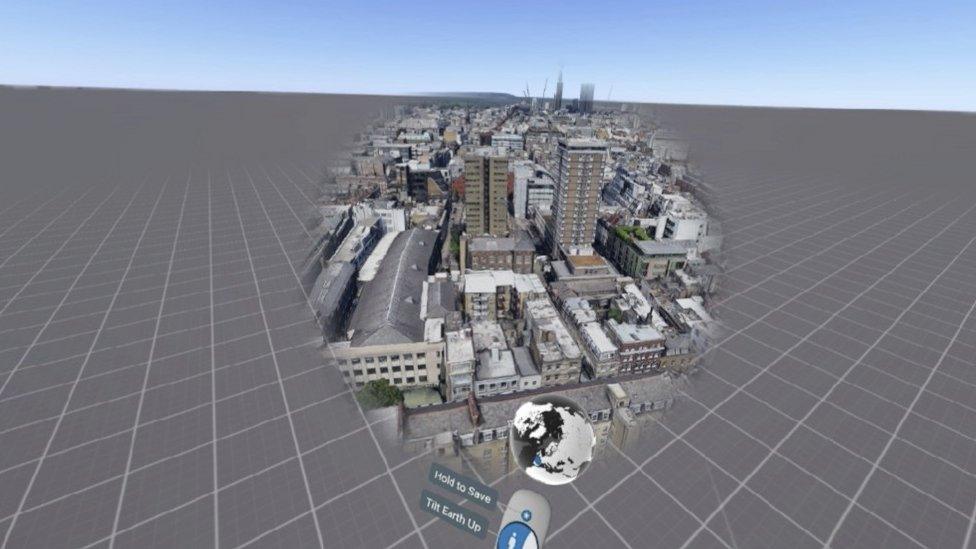
To keep things smooth, Google Earth VR narrows the view when you "fly"
I find it hard to disagree, and it’s all thanks to Google’s exhaustive and increasingly intricate datasets on the Earth and its landscape of mountains, rivers and buildings. The models in Google Earth are based on real data and satellite imagery, and so in many ways seeing an ordinary block of flats in New Jersey is more impressive than sweeping around Big Ben.
That data isn’t complete, however. Head out of main urban areas, or places of stunning natural beauty, and you’ll find the imagery loses resolution and, in some cases, its 3D modelling. Case in point - I couldn’t resist going to the town in England where I grew up, Huntingdon in Cambridgeshire, to see how things looked. Not exactly the back of beyond, but sadly my hometown was flat, blurry and mostly unrecognisable. But that will come in time.
'More authentic'
There are other limits to Google’s data too - limits that I never would have thought of had I not used Google Earth VR - so it’s hardly a criticism of the team.
Using HTC’s hand-held controllers, you navigate your way around the world, with the useful ability to pick and pull at the environment to get an alternative perspective.
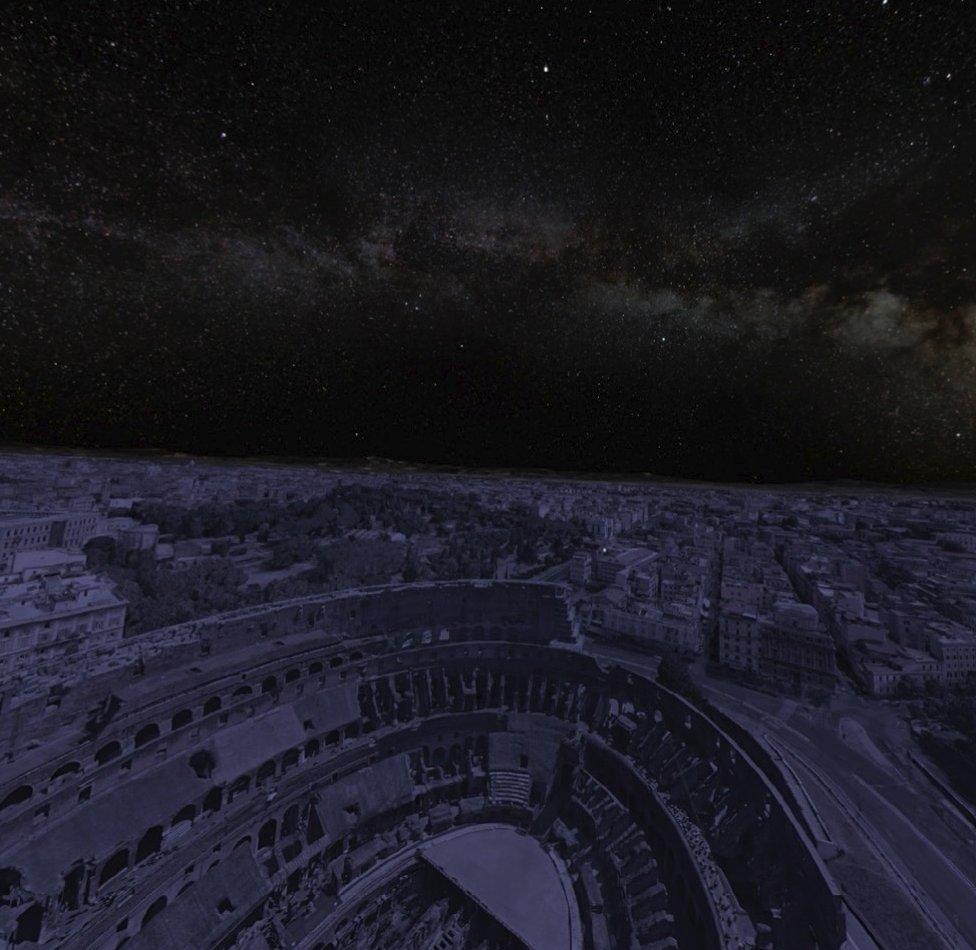
By dragging the sky, the time of day can be changed - although the nightscapes are a little lifeless
But by far the coolest feature comes into play when you look up. Point and drag at the sky and the time of day will change, shadows will stretch out before the area plunges into night-time. It’s an amazing effect.
It’s one big photograph rendered in 3D, and so when you’re looking at the night-time sky, you just see darker buildings, as if the city had suffered a huge power cut.
In fact, Google Earth VR’s entire experience is hindered by the fact the scene you’re looking at is completely dead, a somewhat 28 Days Later-esque world.
To truly bring Earth to life in VR, Google will need to gather more data and perhaps even look to animate parts of this world. Then again, that would come at the expense of accuracy.
I sense Google Earth could go in two directions here: an experience that is more authentic and strictly accurate, or something that has little simulated flourishes that will make it more absorbing.
There are tentative steps to bring things to life, such as nice audio that matches where you are. Rome comes with a bustling cityscape in your ears, while Uluru in the heart of Australia is a touch more peaceful.
HTC deal in the works?
Last week I wrote about Daydream, Google’s more budget-friendly VR system.
This experience won’t work on that - it needs more computing power than any mobile phone can offer yet.
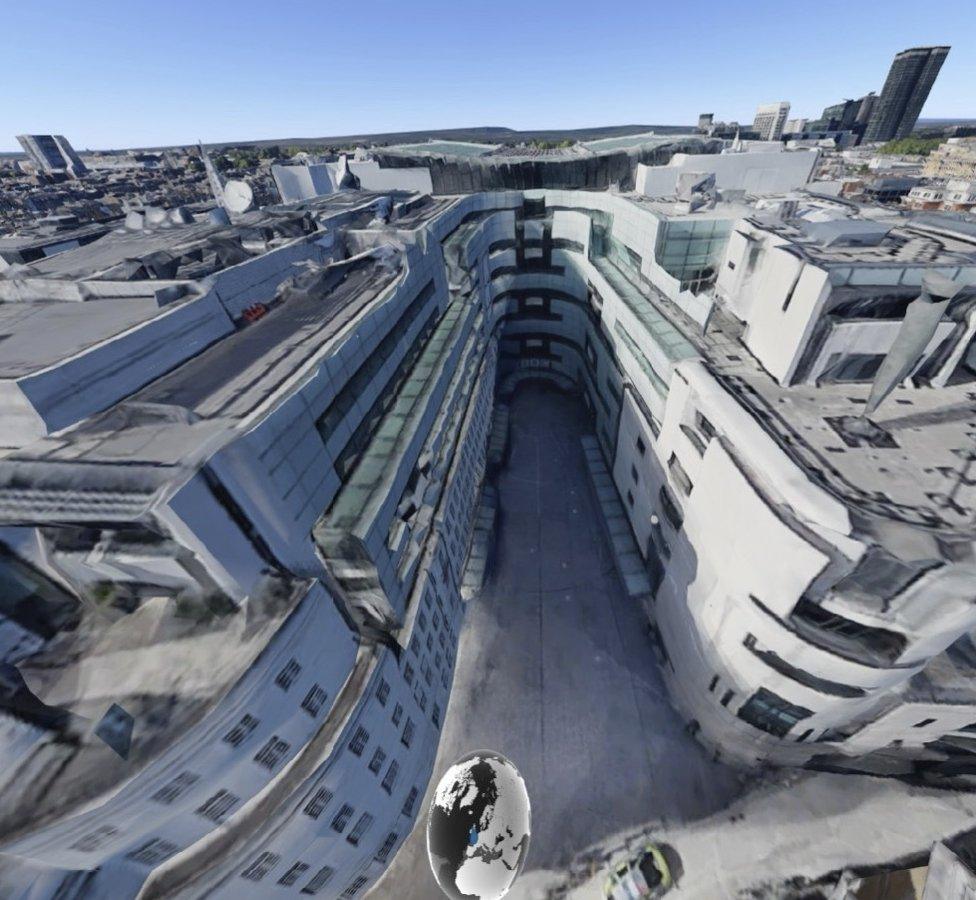
Just dropping in at the office...
So Google Earth VR is currently limited to HTC’s Vive. The team told me that “in theory” it could run on the rival Oculus platform, owned by Facebook. But in practice, I don’t ever see that happening.
In fact, recent hardware moves suggest to me that Google must surely be on the brink of buying out HTC, and locking up the hardware maker to go head-on with Facebook.
The Taiwanese company’s stock last year was being described as “worthless”, but things are looking up. The Pixel and Pixel XL, the first smartphones described as “made by Google”, are in fact made by HTC. And the reviews will tell you they’re great devices.
And with Vive being the platform of choice for Google’s high-end VR efforts, it really seems a question of when, rather than if, a deal to acquire HTC is announced.
I bet Google can't believe its luck: a high-end hardware maker at what is likely to be a bargain price.
Follow Dave Lee on Twitter @DaveLeeBBC, external and on Facebook, external